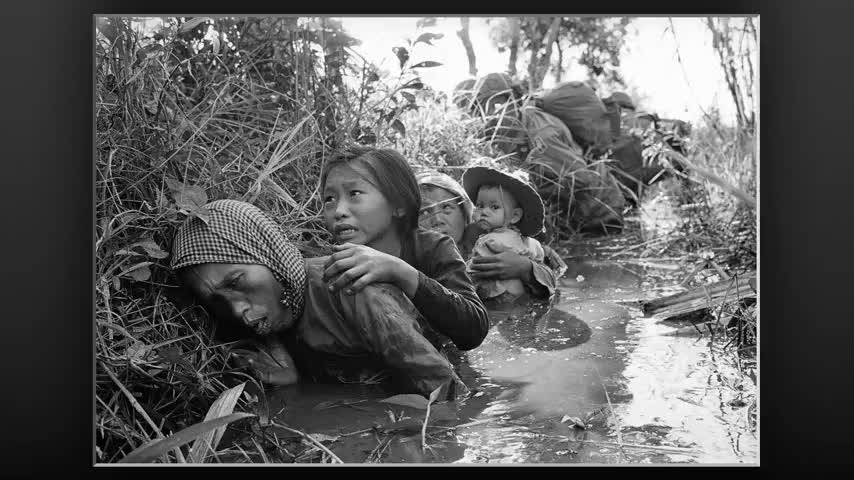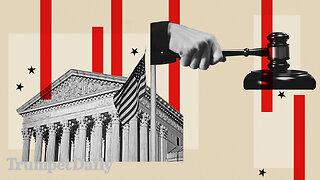Premium Only Content

The Dehumanization of War
The Dehumanization of War
Well dear family, the Lord nudge me to pray ahead against the devastating physical and psychological effects of war and the inhuman treatment of what captors do to those in captivity. Jesus began, "What My children do to one another is dehumanizing, when you deprive someone of their dignity and degrade them in treatment and conditions. I am familiar with this type of treatment.
"War is here and full-scale world war is coming soon and this instills in people impersonal violence and large-scale suffering. Dehumanization becomes prevalent in war times. The hate that intensifies among soldiers at war is a strong human tendency to respond to the dehumanization of others. I tell you not to hate My dear ones, but to love. Yes, love your enemies and let them see Me through you.
"During World War II, My love was demonstrated through My servants, who showed kindness, compassion and yes, even respect to those who were persecuting them. They shared My life and love for them, even to the extent that they laid down their lives for another." And this reminds me of Saint Maximilian Kolbe.
Maximilian Mary Kolbe was a Polish priest and Franciscan friar who volunteered to die in place of a stranger in the German death camp of Auschwitz, located in German-occupied Poland during World War II. He had been active in promoting the veneration of the Immaculate Virgin Mary, founding a monastery near Warsaw, operating a radio station and running several other organizations and publications.
As a boy, he turned to the Mother of God, asking her, "What will become of me?" In reply the Virgin Mother appeared to him holding in her hands, two crowns, one white and one red. She looked at him with love and asked him if I would like to have them. The white meant that he would remain pure and red that he would be a martyr. He answered "Yes" he wanted them both. Then the Virgin looked at him tenderly and disappeared.
When Poland was overrun by Nazi forces in 1939, he was arrested under general suspicion on September 13th, but was released after three months. When first arrested he said: "Courage, my sons. Don't you see that we are leaving on a mission? The thing to do now is to pray well in order to win as many souls as possible. Let us, then, tell the Blessed Virgin that we are content, and that she can do with us anything she wishes.
"No one in the world can change Truth. What we can do and should do is to seek truth and to serve it when we have found it. The real conflict is the inner conflict. Beyond armies of occupation and extermination camps, there are two irreconcilable enemies in the depth of every soul: good and evil, sin and love. And what use are the victories on the battlefield if we ourselves are defeated in our innermost personal selves?"
Kolbe's monastery continued to house polish refugees and on February 17th, 1941, the monastery was shut down by the German authorities and that day Kolbe and four others were arrested by the Gestapo and transferred to Auschwitz as prisoner #16670.
Continuing to act as a priest, Kolbe was subjected to violent harassment, including beatings and lashings. Once he was smuggled to a prison hospital by friendly inmates. In July of 1941, one prisoner escaped from camp, prompting the deputy camp commander to pick ten men to be starved to death in an underground bunker to deter further escape attempts. When one of the selected man, cried out, "My wife! My children!", Kolbe volunteered to take his place. According to an eyewitness, who was an assistant janitor at that time, in his prison cell Kolbe led the prisoners in prayer. Each time the guards checked on him, he was standing or kneeling in the middle of the cell and looking calmly at those who entered. After they had been starved and deprived of water for two weeks, only Kolbe remained alive. The guards wanted the bunker emptied, so they gave Kolbe a lethal injection of carbolic acid. His remains were cremated on August 15th, the feast day of the Assumption of Mary. He is known as the Saint of Auschwitz.
The Lord continued, "You can reach others through compassion by listening to their life experiences and what they have been through and how it has shaped them into who they are presently. Do not be quick to judge them or be critical because of the circumstances and unpleasant living conditions you suddenly find yourselves in, be the light and hope in dark and dire situations. The destructiveness of war is devastating; and can come down to a pivotal moment for a soul's final destination, in that people can either turn to Me or away from Me, your witness of Me may be the last words they hear before dying." And that was the end of our Lord's message.
It is written in John 15:13, "Greater love has no one than this, to lay down one's life for one's friends" or in Saint Maximilian Kolbe's case, for a stranger. Let us always choose to be the light dear ones.
-
 LIVE
LIVE
Kim Iversen
1 hour ago"Canada's Trump" Is Trudeau’s Worst Nightmare: Is Maxime Bernier the Future of Canada?
1,364 watching -
 DVR
DVR
Bannons War Room
10 days agoWarRoom Live
2.56M435 -
 16:06
16:06
The Rubin Report
7 hours agoProof the Islamist Threat in England Can No Longer Be Ignored | Winston Marshall
34.3K22 -
 2:07:07
2:07:07
Robert Gouveia
4 hours agoFBI Files Coverup! Bondi FURIOUS; SCOTUS Stops Judge; Special Counsel; FBI Does
24.8K28 -
 56:15
56:15
Candace Show Podcast
4 hours agoBREAKING: My FIRST Prison Phone Call With Harvey Weinstein | Candace Ep 153
92K65 -
 LIVE
LIVE
megimu32
1 hour agoON THE SUBJECT: The Epstein List & Disney Channel Original Movies Nostalgia!!
143 watching -
 9:06
9:06
Colion Noir
10 hours agoKid With Gun Shoots & Kills 2 Armed Robbers During Home Invasion
4.52K3 -
 54:28
54:28
LFA TV
1 day agoUnjust Man | TRUMPET DAILY 2.27.25 7PM
9.06K2 -
 DVR
DVR
CatfishedOnline
6 hours ago $0.53 earnedGoing Live With Allen Weekly Recap
10.8K -
 20:10
20:10
CartierFamily
7 hours agoAndrew Schulz DESTROYS Charlamagne’s WOKE Meltdown on DOGE & Elon Musk!
26K45